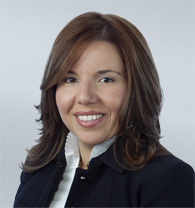
While a lawsuit challenging President Obama’s executive action has garnered headlines recently, another lawsuit that could negatively impact the labor supply and increase the cost of doing business for employers has largely managed to escape the media’s attention. In 2008, the Department of Homeland Security (DHS) promulgated an interim rule expanding the optional practical training (OPT) program for certain science and technology students.
The OPT program allows students here on an F-1 visa (who have either graduated or been pursuing a degree for 9 months) to work in their chosen field of study for one year. The 2008 interim rule extended the employment authorization period by 17 months in science, technology, engineering, and math (STEM) fields. Extending the employment authorization period for STEM fields has solved a major problem known “cap gap.”
Under current immigration rules, a student on an F-1 visa who wants to remain here and apply for an H1-B visa (our visa for highly skilled workers in a specialty occupation) must apply by the April 1 lottery to begin working October 1. If a student’s work authorization expires before his or her H1-B visa is approved, the student will be permitted to remain in the country but unable to work until October 1. By extending the work authorization for STEM degrees by 17 months (for a total of 29 months), it increases the likelihood a student will be able to work through October 1.
Employers benefit from the increase in labor supply created by the extended OPT for STEM degrees. And employees on OPT are desirable to employers because employers do not pay their share of Medicare and Social Security Taxes. Students, of course, benefit from the extended work authorization because it gives them additional time to find a sponsor for an H1-B. But the extended OPT for STEM degrees may be coming to an end soon because of a lawsuit filed by a union representing U.S. technology workers challenging DHS’s authority and process to issue employment authorization to F-1 foreign students after they graduate in the U.S. District Court for the District of Columbia.
In its lawsuit, Washington Alliance of Technology Workers, Local 37083 of the Communication Workers of America, the AFL-CIO (WashTech) alleged that the OPT regulations went beyond the authority of DHS to admit foreign students; the regulations (along with further expansions in 2011 and 2012) were arbitrary and capricious; the OPT program is a conduit for low-wage labor (as there is no requirement to pay a prevailing wage, or Medicare and Social Security taxes) and creates unfair job competition; the increased competition hurts U.S. workers; and the OPT rules are basically a workaround the H-1B quotas. WashTech further alleged that DHS’s regulations failed to comply with the requirements of the Administrative Procedure Act.
As part of the relief requested, WashTech asked the court to (i) declare that DHS exceeded its legal authority by creating the OPT program; (ii) permanently enjoin it from issuing employment authorization to F-1 visa holders not pursuing a full course of study; (iii) invalidate the 17-month STEM extension and any action by DHS in connection with an extension of the program (including the 2011 and 2012 extensions); and (iv) order all non-students currently working under their approved OPT to cease immediately.
Dismissing WashTech’s claims regarding the original 12-month OPT program, U.S. District Judge Ellen Segal Huvelle determined that WashTech had established that its members were harmed by the increased competition for employment in STEM fields and allowed WashTech’s claims as to the 17-month STEM extension to proceed. Earlier this month, both sides moved for summary judgment, and the matter remains pending.
A victory for WashTech would be a blow for businesses. Perhaps worse, such a result could not only undermine government’s ability to implement changes to the OPT program down the road, but it could also create a roadblock for the planned expansion of the OPT program announced under the President’s Immigration Accountability Executive Actions last November. Continue to check back with us for updates on the status of this important immigration decision.
Our firm is available to assist with your immigration needs. For more information, please contact Maria del Carmen Ramos at 813.227.2252 or mramos@slk-law.com.
